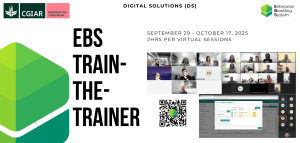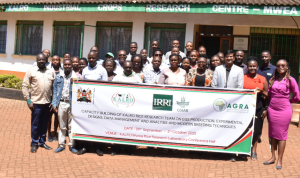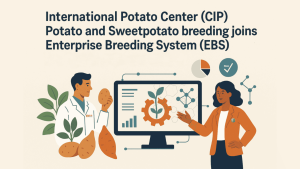A high-performing team is at the core of the Digital Solutions (DS) unit’s delivery of cutting-edge breeding platforms, tools, and services required by partners of the CGIAR Science Program—Breeding for Tomorrow (B4T).
Through capacity-building activities, the DS team is equipped with the know-how needed to holistically support the digital product life cycle—from cloud engineering, software development, to product support. These internal opportunities ensure DS can continually enhance its suite of state-of-the-art and interoperable digital services and infrastructure to support the overall ambition of producing climate-resilient, nutritious, and market-preferred food varieties.
To this effect, the Application Programming Interface (API) Testing Workshop was held on 01 July 2025 for staff based at the International Rice Research Institute Headquarters (IRRI HQ), Philippines.
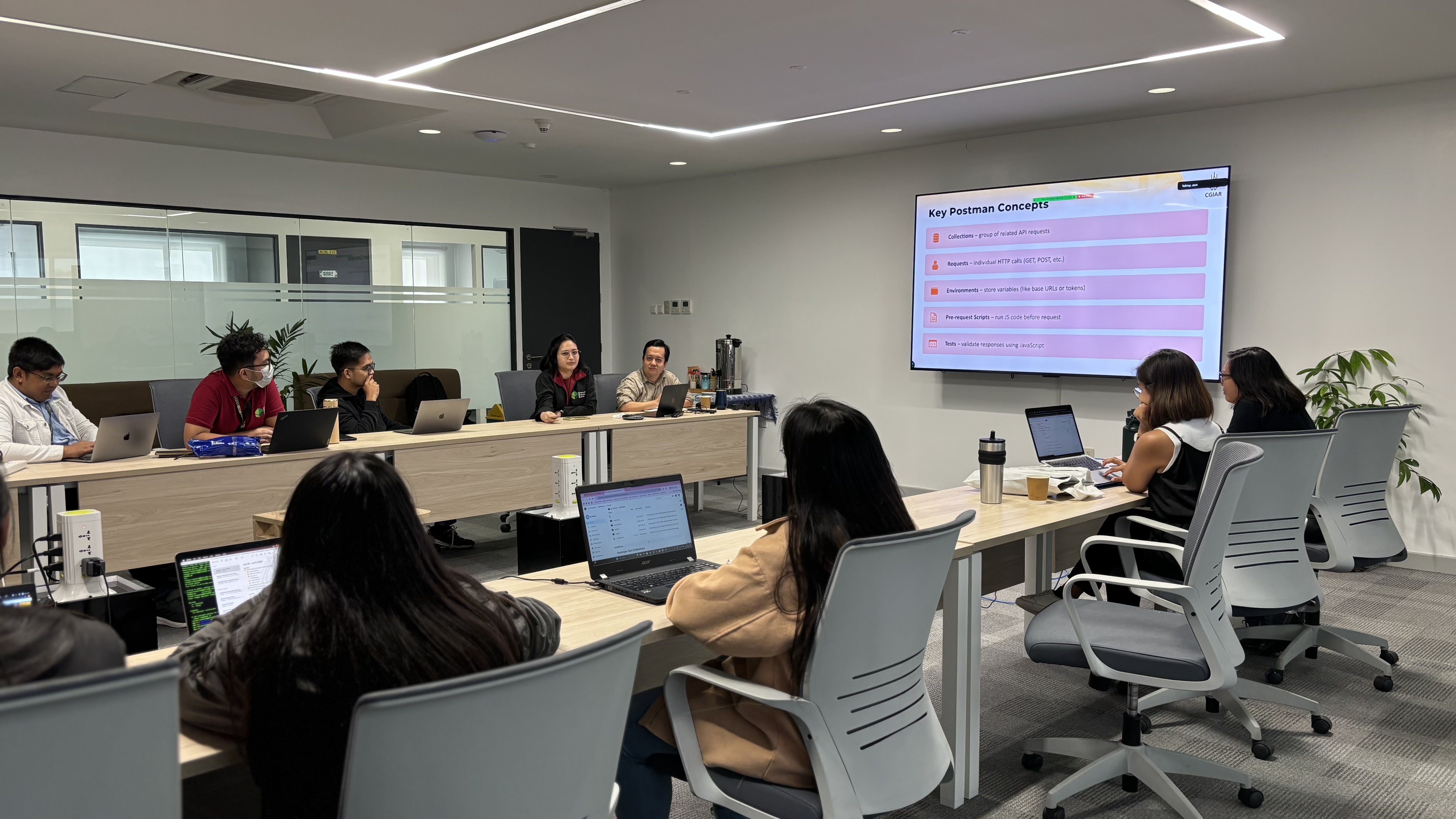
Attended by 15 DS team members, the hybrid session was facilitated by Dinia Grace Gepte (Breeding Analytics Software Engineering Senior Specialist). The workshop is a practical introduction into using Postman as an automated API testing tool. The need to conduct more API tests roots from the database consolidation of the Enterprise Breeding System (EBS)—a key product of the DS unit—to ensure the endpoints remain functional.
Citing its benefits on the development side, Dinia mentions that learning the automated testing tool “…could not only improve the quality of our products and services for our end-users, but also enhance developer experience,”
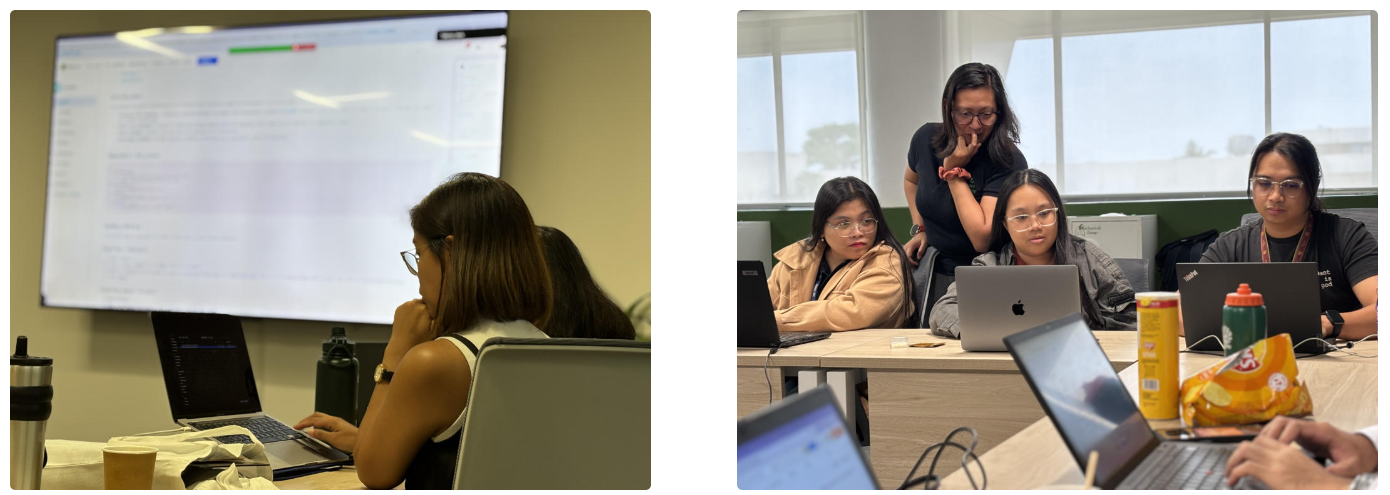
Participants were also encouraged to follow along the presentation so that the hands-on activities can easily be accomplished. Dinia hopes the activities “…would encourage developers to write more automated tests,” as it will ultimately “…reduce manual testing and give us a high degree of confidence that our APIs work as expected in any environment/instance,”

Marinell Ramirez-Quintana (Breeding Analytics Requirements Analyst) commended the flow of the session and appreciated how its design recognized the participants’ varied levels of proficiency.
Noting the impact of the workshop, Marinell also shares that what she learned in the workshop will allow her to contribute to peer and verification testing work, adding that she now has “more understanding of the different testing levels of development before we put them [new features] to release,”
On facilitating the workshop, Dinia shares that she “enjoyed seeing developers, testers, operations, and non-technical people join the session and work together to complete the workshop activities. There were technical difficulties that day, but other than that, I had to be sensitive to the different audience perspective and make it as inclusive as possible.”
Moving forward, Jack Lagare (Solutions Enablement Lead) envisions more upskilling opportunities for team members. “The DS team fosters an environment where members can contribute new ideas and drive innovation—we just have to take the first step,” Dinia adds.
Written by Stephanie Manrilla
